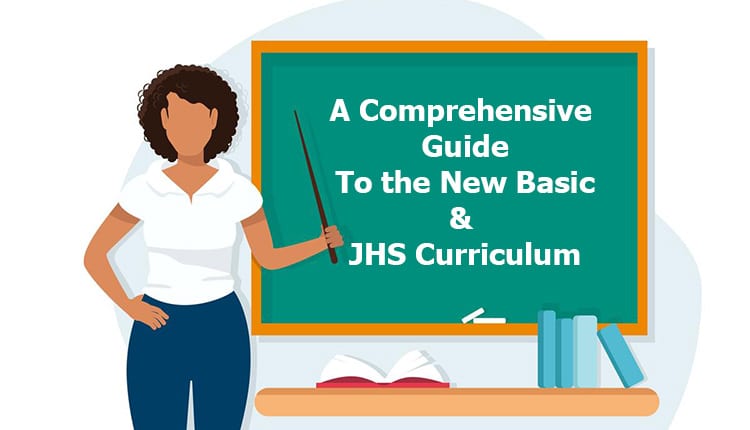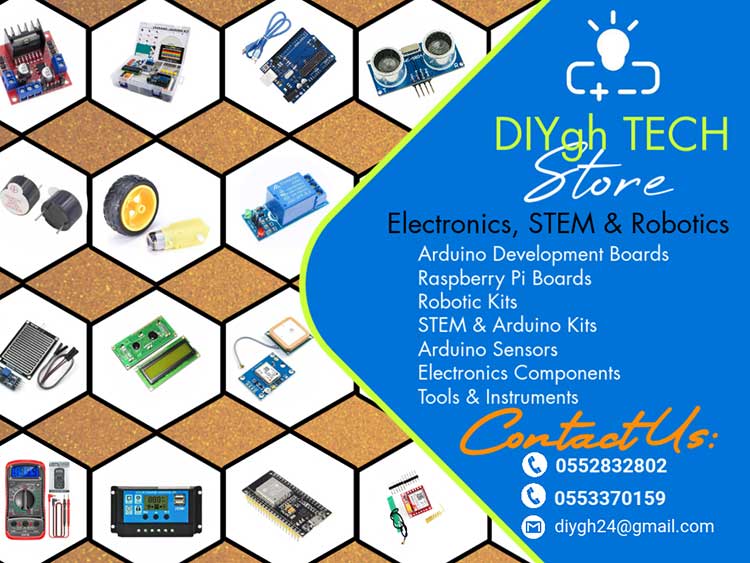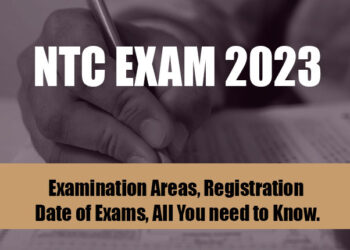As a devoted educator, staying informed about the latest developments in education is crucial. The revised Junior High School (JHS) curriculum presents an opportunity for you to revolutionize your teaching approach and deliver the best possible education to your students.
This comprehensive guide will provide an in-depth exploration of the updated JHS curriculum, its key changes, and how you can adapt your teaching methods to meet the new objectives. Moreover, you will discover innovative teaching techniques and ideas for integrating technology into the classroom to create an engaging and modern learning environment.
By understanding the challenges and opportunities presented by the updated curriculum, you can embrace the revolution in teaching approaches and guide your students to success.
Introduction to the Updated JHS Curriculum
The revised JHS curriculum is designed to modernize and streamline the educational experience for both students and educators. As the world becomes increasingly interconnected and technologically advanced, the need to equip students with the skills and knowledge necessary to succeed in the 21st century has never been more crucial.
The new curriculum focuses on fostering critical thinking, problem-solving, creativity, and collaboration, while also incorporating the latest advancements in pedagogy and digital learning.
In addition to emphasizing these essential skills, the new curriculum aims to provide a more holistic and student-centered approach to education. By addressing the diverse needs of learners, the new JHS curriculum ensures that every student has the opportunity to reach their full potential. This shift in focus demands a transformation in teaching methods and strategies, requiring educators to adapt and grow alongside their students.
Key Changes in the New JHS Curriculum
The new JHS curriculum is centered around several key changes that reflect its modern and student-focused approach. Among these are the introduction of new subjects, the restructuring of existing subjects, and an emphasis on competency-based learning.
There are a couple of new subjects introduced in the new JHS curriculum to provide students with a broader and more well-rounded education. These subjects include digital literacy and entrepreneurship, which are designed to develop students’ technological skills and entrepreneurial mindset.
Moreover, subjects such as physical education, health education, and life skills have been given greater prominence to promote overall well-being and personal development.
Also, the restructuring of existing subjects ensures that the curriculum remains relevant and in line with global educational standards. For example, the integration of environmental studies into the science curriculum highlights the importance of sustainable development and environmental stewardship in today’s world.
Also, check out these articles;
The new JHS curriculum emphasizes competency-based learning, which focuses on the development of practical skills and the application of knowledge in real-world contexts. This approach encourages students to take ownership of their learning and develop a deeper understanding of the subject matter.
Understanding the Objectives of the Updated Curriculum
The new JHS curriculum has been designed with specific objectives in mind. These objectives provide a framework for the development of the curriculum and the teaching methods that accompany it. By understanding these objectives, you can better align your teaching approach with the updated curriculum and provide a more effective and engaging learning experience for your students.
- Fostering critical thinking and problem-solving skills: Encouraging students to think critically and solve problems independently is a central objective of the updated curriculum. Developing these skills prepares students for success in higher education and the workforce.
- Promoting creativity and innovation: The updated curriculum emphasizes the importance of nurturing creativity and innovation in students. By fostering these qualities, educators can help students develop the ability to think outside the box and adapt to new challenges.
- Enhancing collaboration and communication: Strong collaboration and communication skills are essential for success in the modern world. The updated curriculum aims to facilitate the development of these skills through group work, presentations, and other interactive learning experiences.
- Cultivating digital literacy and technological proficiency: As the world becomes increasingly digital, the updated curriculum recognizes the importance of equipping students with the necessary technological skills. Digital literacy and technology integration are key components of the updated curriculum.
- Encouraging lifelong learning and personal growth: The updated curriculum seeks to foster a love of learning and personal growth in students. By promoting curiosity and self-reflection, educators can help students develop the skills and mindset needed for lifelong learning.
Downloading the JHS New Syllabus and Curriculum in PDF Format
To fully understand and implement the updated JHS curriculum, it is essential to have access to the official syllabus and curriculum documents. These materials can be easily downloaded in PDF format from the official website of your country’s Ministry of Education or similar governing body. If you are in Ghana you can download all the new curriculum from this link.
By familiarizing yourself with these documents, you can ensure that your teaching approach is aligned with the updated curriculum and that you are providing the best possible education for your students.
Adapting Your Teaching Approach to the New JHS Curriculum
With the introduction of the updated JHS curriculum, it is crucial to adapt your teaching approach to meet its new objectives and requirements. This process may involve reevaluating your current methods, integrating new strategies, and embracing innovative teaching techniques.
- Emphasize active learning and student engagement: The updated curriculum encourages a more student-centered approach to education. By incorporating active learning strategies, such as group work, discussions, and hands-on activities, you can help students take ownership of their learning and develop a deeper understanding of the subject matter.
- Focus on real-world application and problem-solving: The updated curriculum emphasizes the importance of practical skills and real-world application. By incorporating real-world examples and problem-solving activities into your lessons, you can help students develop the skills needed for success in the modern world.
- Promote collaboration and communication: The updated curriculum encourages the development of collaboration and communication skills. By incorporating group work, presentations, and other interactive learning experiences, you can help students develop these essential skills.
- Integrate technology and digital literacy: The updated curriculum places a strong emphasis on digital literacy and technology integration. By incorporating technology into your lessons and teaching students how to effectively use digital tools, you can help them develop the necessary skills for success in the digital age.
- Foster a growth mindset and encourage self-reflection: The updated curriculum seeks to promote personal growth and lifelong learning. By fostering a growth mindset and encouraging self-reflection, you can help students develop the skills and mindset needed for continual improvement and success.
Innovative Teaching Methods for the Updated Curriculum
The updated JHS curriculum presents an opportunity to explore and implement innovative teaching methods that align with its objectives and requirements. By integrating these methods into your teaching approach, you can create a more engaging and effective learning experience for your students.
- Project-based learning: Project-based learning (PBL) is an instructional method that encourages students to explore and solve real-world problems through the completion of projects. PBL promotes critical thinking, problem-solving, and collaboration, making it an ideal teaching method for the updated curriculum.
- Flipped classroom: The flipped classroom model involves students watching instructional videos or completing readings at home and participating in hands-on activities and discussions in the classroom. This approach allows for more personalized and active learning, aligning with the objectives of the updated curriculum.
- Gamification: Gamification involves incorporating game elements, such as points, badges, and leaderboards, into the learning process to make it more engaging and enjoyable for students. Gamification can be used to motivate students, promote collaboration, and develop problem-solving skills.
- Inquiry-based learning: Inquiry-based learning encourages students to explore a topic or problem through questioning, research, and discovery. This teaching method fosters critical thinking, creativity, and collaboration, making it well-suited for the updated curriculum.
- Blended learning: Blended learning combines traditional face-to-face instruction with online learning experiences. This approach allows for greater personalization and flexibility in the learning process, while also promoting digital literacy and technological proficiency.
Integrating Technology into the JHS Classroom
Technology integration is a key component of the updated JHS curriculum, as it can enhance the learning experience, promote digital literacy, and prepare students for success in the digital age. Consider the following strategies for effectively integrating technology into your classroom:
- Leverage educational apps and software: Utilize educational apps and software to create engaging and interactive learning experiences for your students. This can include tools for collaboration, assessment, and content creation.
- Incorporate multimedia resources: Use multimedia resources, such as videos, podcasts, and interactive websites, to supplement your lessons and provide students with varied and engaging learning materials.
- Promote digital citizenship: Teach students about digital citizenship and the responsible use of technology, including online safety, digital etiquette, and information literacy.
- Encourage student-led technology use: Allow students to take the lead in using technology for learning, such as creating presentations, conducting research, or collaborating on projects.
- Offer opportunities for coding and programming: Introduce students to coding and programming through activities and lessons that develop their computational thinking and problem-solving skills.
Assessing Student Progress Under the New JHS Curriculum
Assessment is an integral part of the learning process, as it provides valuable information on student progress and areas for improvement. The updated JHS curriculum encourages the use of a variety of assessment methods to provide a more comprehensive and accurate picture of student performance. Consider incorporating the following assessment strategies into your teaching approach:
- Formative assessment: Formative assessment involves ongoing, informal evaluation of student progress throughout the learning process. This can include observations, quizzes, and class discussions.
- Summative assessment: Summative assessment measures student achievement at the end of a unit or course, such as through exams, projects, or presentations.
- Performance-based assessment: Performance-based assessment evaluates student performance through the completion of tasks or activities that demonstrate their understanding and skills.
- Self-assessment and peer assessment: Encourage students to engage in self-assessment and peer assessment to develop their critical thinking and self-reflection skills.
- Digital assessment tools: Utilize digital assessment tools and platforms to streamline the assessment process and provide more personalized feedback to students.
Challenges and Opportunities in Implementing the Updated Curriculum
Implementing the updated JHS curriculum presents both challenges and opportunities for educators. By recognizing these challenges and embracing the opportunities they present, you can successfully transition to the new curriculum and create a more effective and engaging learning environment for your students.
Challenges may include:
- Adapting to new teaching methods: The updated curriculum requires a shift in teaching methods and strategies, which may be challenging for educators who are accustomed to traditional approaches.
- Integrating technology: Effectively integrating technology into the classroom can be a complex process, particularly for educators who may not be confident in their own technological skills.
- Assessing student progress: The updated curriculum encourages the use of a variety of assessment methods, which may require educators to adapt their existing assessment practices.
Opportunities may include:
- Professional growth and development: Embracing the updated curriculum presents an opportunity for educators to grow and develop their professional skills, particularly in the areas of technology integration and innovative teaching methods.
- Enhanced student engagement and achievement: By implementing the updated curriculum and its associated teaching methods, educators can create a more engaging and effective learning environment that supports student success.
- Collaboration and networking: The transition to the updated curriculum provides an opportunity for educators to collaborate and network with their peers, sharing ideas, resources, and best practices.
Conclusion: Embracing the Revolution in Teaching Approaches
The updated JHS curriculum presents a unique opportunity for educators to revolutionize their teaching approach and create a more engaging, effective, and modern learning environment for their students.
By understanding the key changes and objectives of the updated curriculum, adapting your teaching methods, and embracing innovative teaching techniques and technology integration, you can ensure that your students are prepared for success in the 21st century. Embrace the revolution in teaching approaches and guide your students to a brighter future.










Good morning GES, there’s something bothering me concerning the new curriculum. My child often comes home from school asking to use my phone for research to complete homework. However, there was a time when I didn’t have data or the money to buy it, and when I asked my child if the teachers provided any notes to assist, he said they only gave the topic and asked them to research.
I raised this issue with the headmaster, but he mentioned that they are following GES instructions based on the new curriculum. My concern is, what about children in rural areas, such as those living in cocoa farms, where internet access is poor? In some areas, parents must hang their phones on trees just to get a signal. How are such children expected to complete their assignments effectively?
Hello Mr. Twum,
Thank you for sharing your concern. I understand the challenges you’re facing with the new curriculum, especially regarding the need for internet access to complete assignments. While I am not part of the Ghana Education Service (GES) management, I recommend reaching out to them directly to address your concerns. You can contact GES through their official website: https://ges.gov.gh/. They are best positioned to provide guidance and support on this matter.